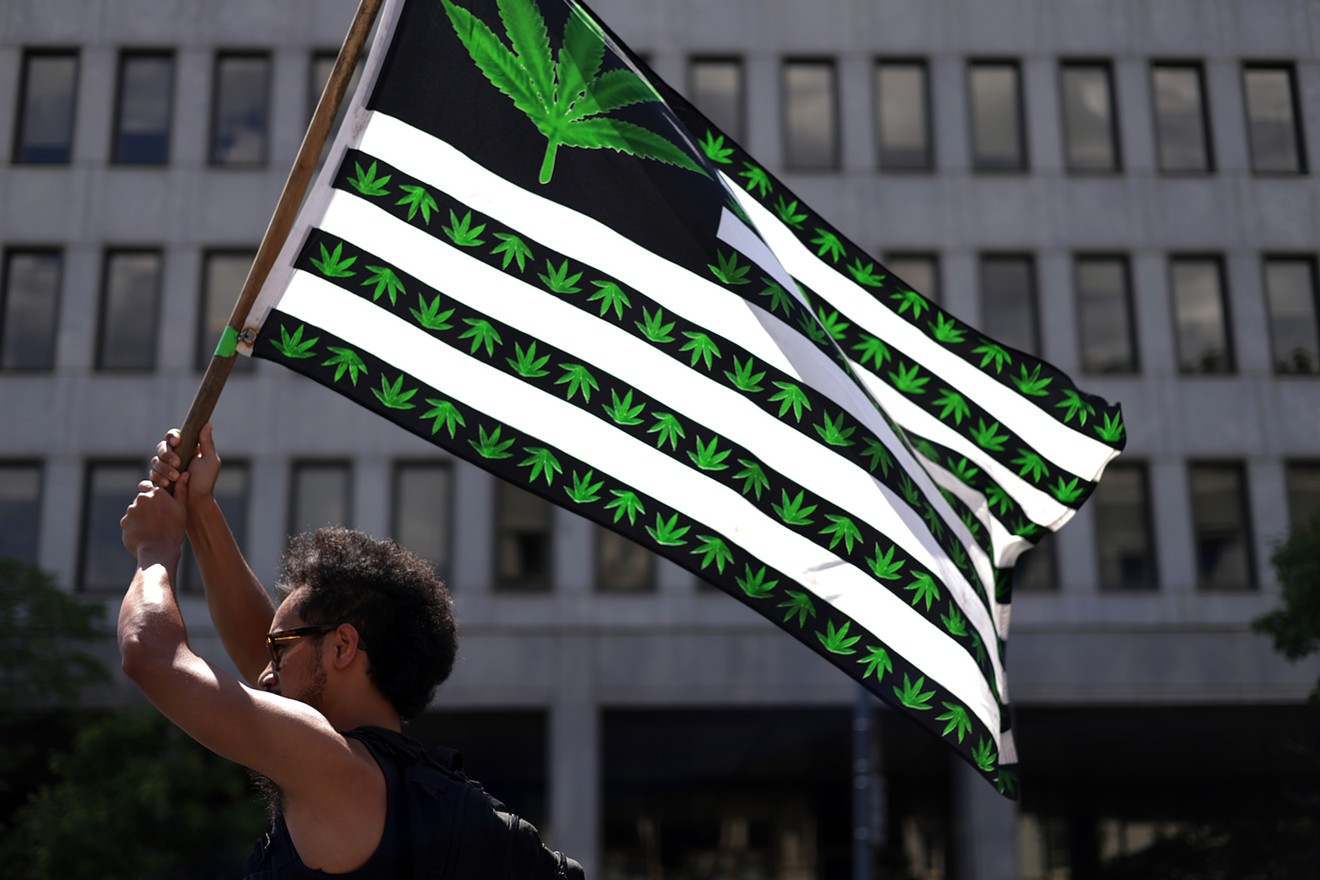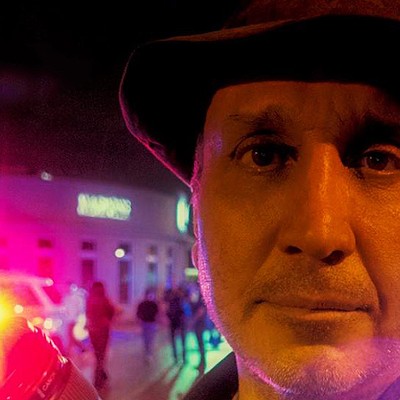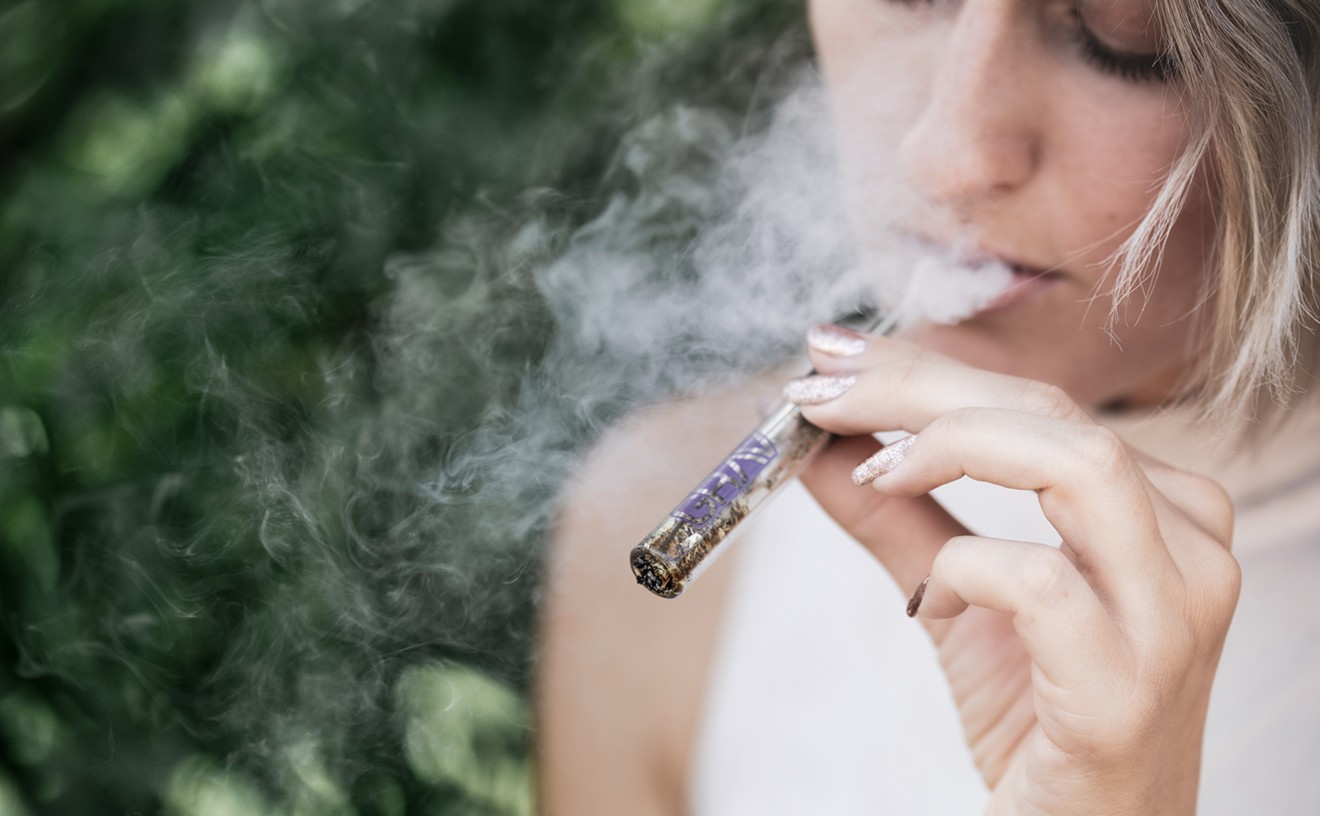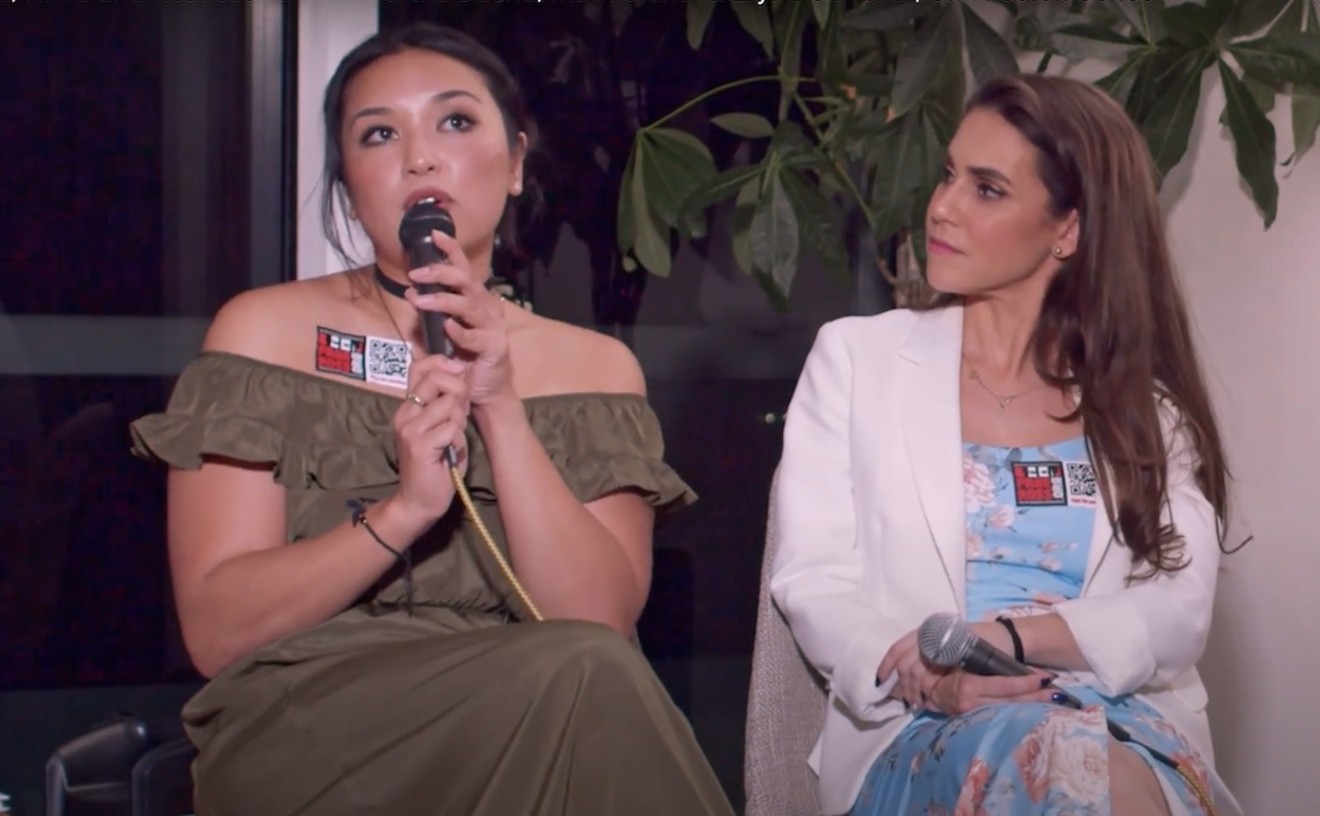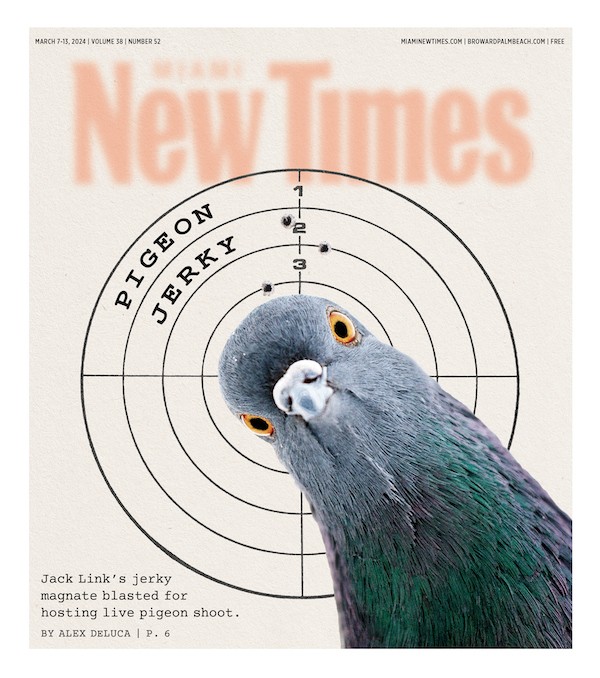But Florida officials have managed to keep recreational marijuana off the ballot, despite a recent poll indicating that 60 percent of Florida voters approve of legalizing it.
Florida Attorney General Ashley Moody is asking the Florida Supreme Court to nullify the efforts of a group called Smart and Safe Florida, which obtained more than one million signatures to put the issue to voters in the 2024 general election.
Moody — who will present her arguments to the state's highest court this Wednesday, November 8 — claims the petition is "misleading" based on several factors she outlines in her brief, including the fact that marijuana remains illegal on the federal level, which would "subject users to devastating criminal liability under federal law."
Moody's argument doesn't fly with Melba Pearson, a civil rights and criminal law attorney who unsuccessfully ran against Miami-Dade State Attorney Katherine Fernandez-Rundle in 2020 and who currently works at Florida International University's Jack D. Gordon Institute for Public Policy.
"That's disingenuous, because about 25 other states have legalized recreational cannabis and it's still illegal on the federal level," Pearson tells New Times, adding that citizens in states where recreational marijuana is legal are well aware of the federal prohibition. "We also have medical cannabis here in Florida, and it is still illegal on the federal level," she notes.
Pearson calls Moody's attempts to keep the issue off the ballot "another form of voter suppression."
"We have seen this from the inception of Amendment Four in 2018, where more than 60 percent of Floridians voted in favor of giving voting rights to people who have completed their sentences after being involved in the criminal justice system. From that moment, there has been an attack on the use of ballot initiatives — especially when it's grassroots and citizens. And it's disingenuous because voters are the ones who should be deciding these types of issues. That's why we have the mechanism to have a ballot initiative.""[Since] Amendment Four in 2018, there has been an attack on the use of ballot initiatives — especially when it's grassroots and citizens."
tweet this
The Legal Issues
Both the Florida Chamber of Commerce and the Drug Free America Foundation have filed briefs in support of Moody's effort.The latter organization bases its opposition on the supremacy of federal law, coupled with the fact that the Controlled Substances Act continues to classify cannabis as a Schedule I drug, i.e., one with "no currently accepted medical use and a high potential for abuse."
(That, of course, hasn't stopped half the country from establishing means for people to purchase marijuana for recreational use. And in October, a coalition of cannabis companies and investors in Massachusetts filed a federal lawsuit against U.S. Attorney General Merrick Garland, taking aim at the Controlled Substances Act with respect to individual states whose laws permit the cultivation and sale of marijuana. This now-established commerce, the plaintiffs argue, renders the Controlled Substances Act "unconstitutional as applied to the intrastate cultivation, manufacture, possession, and distribution of marijuana pursuant to state law.")
The chamber of commerce zeroes in on another argument Moody puts forth: that the proposed amendment violates Florida's "one subject" rule, which requires that any revision or amendment may address only one issue. The proposed amendment text, the chamber's attorneys contend, "impermissibly embraces the dual subjects of decriminalization and commercialization of recreational marijuana" by failing to include a provision for Floridians to grow their own marijuana for personal consumption while calling for the establishment of a system for dispensaries to sell cannabis.
Pearson dismisses that line of argument, noting that if cannabis is legalized, then citizens need to be able to buy it in a lawful manner. "It's all under the same umbrella," she says.
Christopher Cano, who sits on the board of directors of the National Organization for the Reform of Marijuana Laws (NORML) and cofounded the group's Suncoast chapter, agrees, noting that adding home grow to the amendment would violate the single-subject rule Moody herself cites.
In fact, Cano says, that very pitfall (along with marijuana's illegal federal status) helped to doom similar proposals in 2016 and 2021.
"The supreme court struck down other initiatives in the past because they had homegrown in addition to legalization included in the initiative," he sums up. "And so the Smart Safe Florida initiative strictly just allows the existing [dispensaries] that are licensed for medical marijuana use to sell to adults 21 and up without a doctor's recommendation.""These smoke-filled-room practices allow representatives to vote against the interests of their constituencies."
tweet this
The American Civil Liberties Union of Florida and the Cato Institute, a libertarian think tank, have filed briefs in support of Smart and Safe Florida.
Notably, the Cato Institute's brief reminds the court that single-subject clauses originated as constitutional checks on legislatures, not on the citizenry, and were aimed at preventing elected officials from strategies like logrolling and riders. "These smoke-filled-room practices, whereby legislators can pass minority provisions by tying them to each other or to a more popular provision, allow representatives to vote against the interests of their constituencies."
Cato's lawyers write that citizen initiatives such as the Smart and Safe Florida amendment "can be a powerful instrument both of individual liberty and of democratic ideals, and courts should not interpret rules in ways that thwart that purpose. But Florida courts sometimes unduly restrict citizen initiatives through misapplication of the single-subject rule."
Larger Forces at Play
Melba Pearson emphasizes that legalizing recreational marijuana would address past societal wrongs while adding to Florida's tax revenues."Recreational cannabis should be legalized from the standpoint of bringing more money into our coffers," she asserts. "This is all tax revenue that can be used for positive purposes to help our community on issues like affordable housing and teachers' salaries."
Adds Pearson, "Legalizing it is a good thing from not only a fiscal perspective but from a criminal-justice perspective, and a governance perspective," in that it would reverse some of the societal damage done by the nation's ongoing War on Drugs, which disproportionately punishes people of color who are living in poverty.
Cano, meanwhile, suggests that there is likely a darker motive behind Moody's method.
He notes that an abortion initiative put forth by an umbrella group called Floridians Protecting Freedom, has gathered nearly 500,000 of the required 891,523 signatures ahead of a February 1 deadline to put the issue on the 2024 ballot. In a separate brief to the Florida Supreme Court signaling that she intends to block the initiative, Moody called the initiative's wording "misleading" and "part of a similar overall design to lay ticking time bombs that will enable abortion proponents later to argue that the amendment has a much broader meaning than voters would ever have thought.""Moody is doing everything she can to prevent initiatives that will increase turnout from winding up on the ballot."
tweet this
Cano detects a different ticking time bomb — and it's one that's being wielded by Moody.
"The Republicans could possibly lose Florida with adult use of marijuana on the ballot because there will be voters turning out to vote who typically don't align with their values," he says. "Moody is doing everything she can to prevent initiatives that will increase turnout from winding up on the ballot."
"Those two key initiatives are the adult-use marijuana initiative and the abortion-protection initiative. Those are the two she's currently challenging in front of the supreme court."
